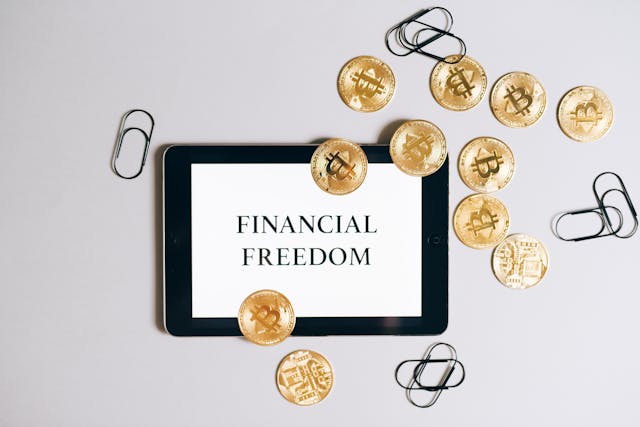Write Us: hello@ali5.org
Daily Money Habits of People Who Never Stress About Bills
Discover the simple, daily money habits of people who never worry about paying bills. Learn how to build financial calm through smart, consistent routines.

Some people treat money like a constant emergency. Others seem to glide through the month like bills are just background noise. What’s the difference?
It’s not that they earn six figures (though some do). It’s that they act like people who are in control of their money on a daily basis. No drama. No frantic checking of their bank app before every grocery run. Just calm, steady habits that keep things running smoothly.
Let’s unpack the daily money habits of people who never stress about bills so you can start building your own version of financial calm.
1. They Check In, Not Out
People who never stress about money know where their money is going. Not in a “checking five times a day” kind of way, but with regular awareness. It’s like brushing your teeth; you just do it.
What this looks like:
-
A 2-minute glance at yesterday’s spending
-
A daily check-in with a budgeting app or notebook
-
Reviewing upcoming expenses for the week over coffee
They treat money like a relationship: consistent attention, not random panic when things go wrong.
2. They Budget Daily, Without Making It a Chore
Forget the big, scary word “budget.” These people treat it more like a compass. It’s not about restriction, it’s about direction. The point isn’t to track every rupee obsessively. It’s to stay intentional.
They’re not surprised by bills because they’ve already planned for them. They don’t feel guilty for spending, because it’s already factored in.
Try this:
Write down what you plan to spend today. Just for the day. Then check in at night. That’s it. No Excel sheets, no guilt. Start small.
3. They Automate the Boring Stuff
Want to never miss a bill? Take yourself out of the equation.
People who are calm about money don’t rely on memory. They set things up once and let tech do the work:
-
Bills are on autopay
-
Savings are auto-transferred after payday
-
Credit card payments happen automatically
They build systems so they don’t have to think about money 24/7, and that’s what keeps them mentally free.
4. They Know Their “Monthly Number”
Ask them how much they need to cover life, and they’ll tell you. Not a vague guess, an actual number.
This includes:
-
Rent or mortgage
-
Utilities
-
Groceries
-
Subscriptions
-
Transportation
-
Personal spending
Knowing this gives you power. You stop overspending by accident. You stop under-saving. You stop being blindsided by the calendar.
Pro tip: Write down your exact monthly number and keep it somewhere visible. It’ll anchor your spending every single day.
5. They Pay Themselves First, Even If It’s Small
The secret sauce: They save before they spend.
Even if it’s just 100 rupees, people with strong money habits make sure they’re putting something aside every day or week. They treat saving like a non-negotiable bill to themselves.
Why it works:
It builds consistency. And consistency builds wealth, even on a modest income.
Start with micro-saving. Transfer a tiny amount daily. Over time, it becomes automatic and powerful.
6. They Don’t Wait for Big Wins
People who never stress about bills aren’t hoping for a lottery ticket or a massive raise to solve their money issues. They focus on small, daily wins:
-
Saying no to one impulse buy
-
Choosing a home-cooked meal over takeout
-
Reviewing a bank statement to catch surprise charges
-
Canceling a forgotten subscription
They know these tiny moments compound. And they treat them with the respect they deserve.
7. They Keep Spending Simple
They don’t need five credit cards. They’re not juggling money between ten apps. Their systems are boring on purpose.
Because here’s the truth: the simpler your setup, the easier it is to stay in control.
You’ll often find:
-
One main debit card for essentials
-
One credit card with auto-pay and rewards
-
A separate account just for bills
-
Cash for daily use (for some people, this works even better)
Minimalism isn’t just aesthetic, it’s strategic.
8. They Track Emotional Spending
Here’s what people who don’t stress about bills know: money and emotions are tied together. Closely.
They don’t just track what they buy. They track why. They’ve trained themselves to pause and ask:
-
Am I bored?
-
Am I anxious?
-
Am I trying to keep up?
-
Will I still want this tomorrow?
Over time, they build a kind of self-awareness that protects their wallet and their mental peace.
9. They Talk About Money (Instead of Avoiding It)
Money isn’t taboo to them. It’s a skill, a tool, a part of life.
They’ll talk openly with a partner about the grocery budget. They’ll text a friend for advice before making a big purchase. They read about personal finance the same way others read the news.
Money isn’t a mystery in their life; it’s a conversation. A regular, calm, proactive one.
10. They Practice Daily Gratitude
This might sound soft, but it’s not. People who are financially calm often build a habit of noticing enough.
They’re not constantly trying to upgrade everything. They don’t scroll online shopping sites for no reason. They remind themselves of what they already have.
That mindset helps reduce impulsive spending. It also makes them feel rich, even before they have a huge savings account.
And feeling secure is half the battle.
Final Thoughts: It’s Not About Perfection
Nobody’s born with perfect money habits. Even the calmest, most prepared people have had moments where they were broke, behind, or anxious.
What separates them is this: they decided to stop living reactively. And they built small, sustainable habits that create calm instead of chaos.
If you want to never stress about bills again, don’t wait for a raise or a windfall. Start with your daily money behavior. That’s where the real change begins.







